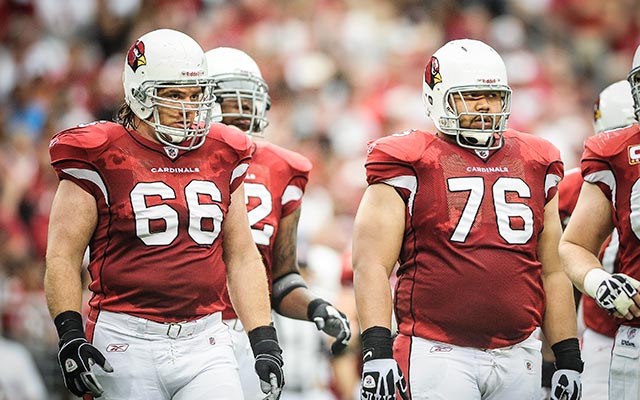
More NFL offseason: League minicamp dates | Latest news, notes
Even though the NFL and those who have sued the league over past head injuries came to an agreement late last month that would leave the league's payments to those players uncapped, some former players still aren't happy with the new proposed settlement.
According to the NY Times, seven former players, including former Steelers standout and nine-time Pro Bowler Alan Faneca, now say the proposed settlement -- which, mind you, still has to be approved by a judge -- wouldn't compensate a number of retired football players, including those who shows signs of chronic traumatic encephalopathy (CTE).
That's because the former players say those who played in NFL Europe, which is now defunct, wouldn't be covered by the settlement. As the LA Times writes, "NFL Europe players aren’t credited for seasons in the league (award amounts are adjusted depending on a player’s experience) though they are bound by the settlement."
Along with Faneca, Robert Royal -- who played for the Redskins, Bills and Browns from 2003-10 -- also is objecting to the new proposed settlement and is among those former players who filed a 58-page objection to federal court Wednesday.
The former players also say the plaintiffs haven't said how they reached an agreement with the league and that the plaintiffs' lawyers are asking for $112 million in fees.
“The Revised Settlement is a great deal -- for the NFL and Class Counsel,” the filing said. “It is a lousy deal for the retired players, whose rights have been bargained away without adequate or independent representation.”
Originally, the NFL and the plaintiffs had agreed on a $765 million settlement in August 2013, but a judge threw out the settlement because she was worried that settlement might not be enough to cover all former players for the 65-year life of the agreement.
Thus, under her supervision, the two sides came to the uncapped agreement.
"This means that once the compensation program is established funds will be available to any retired player who develops a qualifying neurocognitive condition," the plaintiff's attorneys said when the settlement was announced.
As the NY Times writes, "The NFL's new, open-ended commitment is expected to be enough to persuade [judge Anita B.] Brody to allow the settlement to be sent to the players. Brody could rule on the objections to the settlement at a fairness hearing after the players have had a chance to respond, or she could dismiss some or all of the complaints. If the objectors are unsatisfied with her response, they could appeal the settlement. No cash awards would be paid until all appeals are exhausted."





















